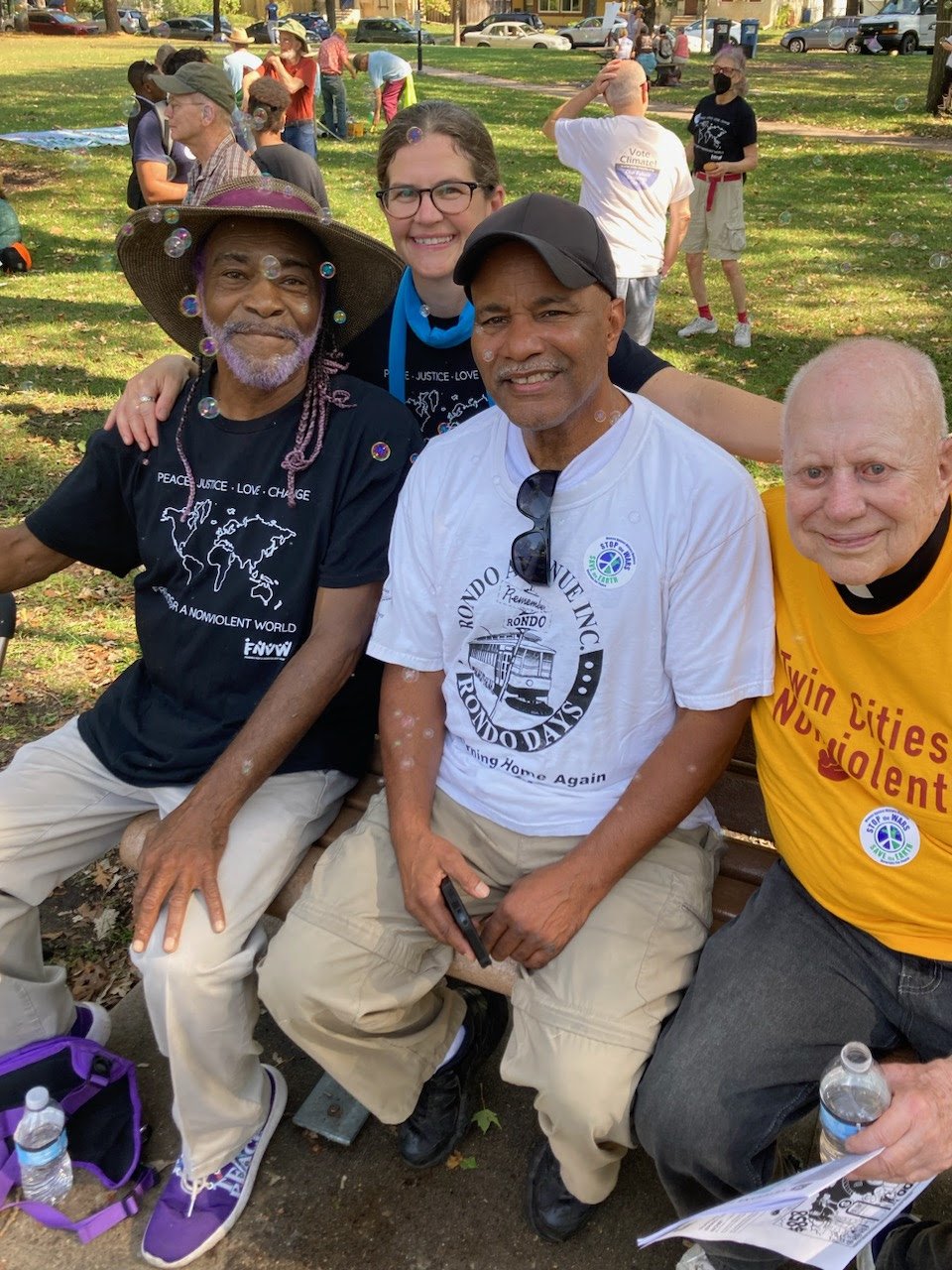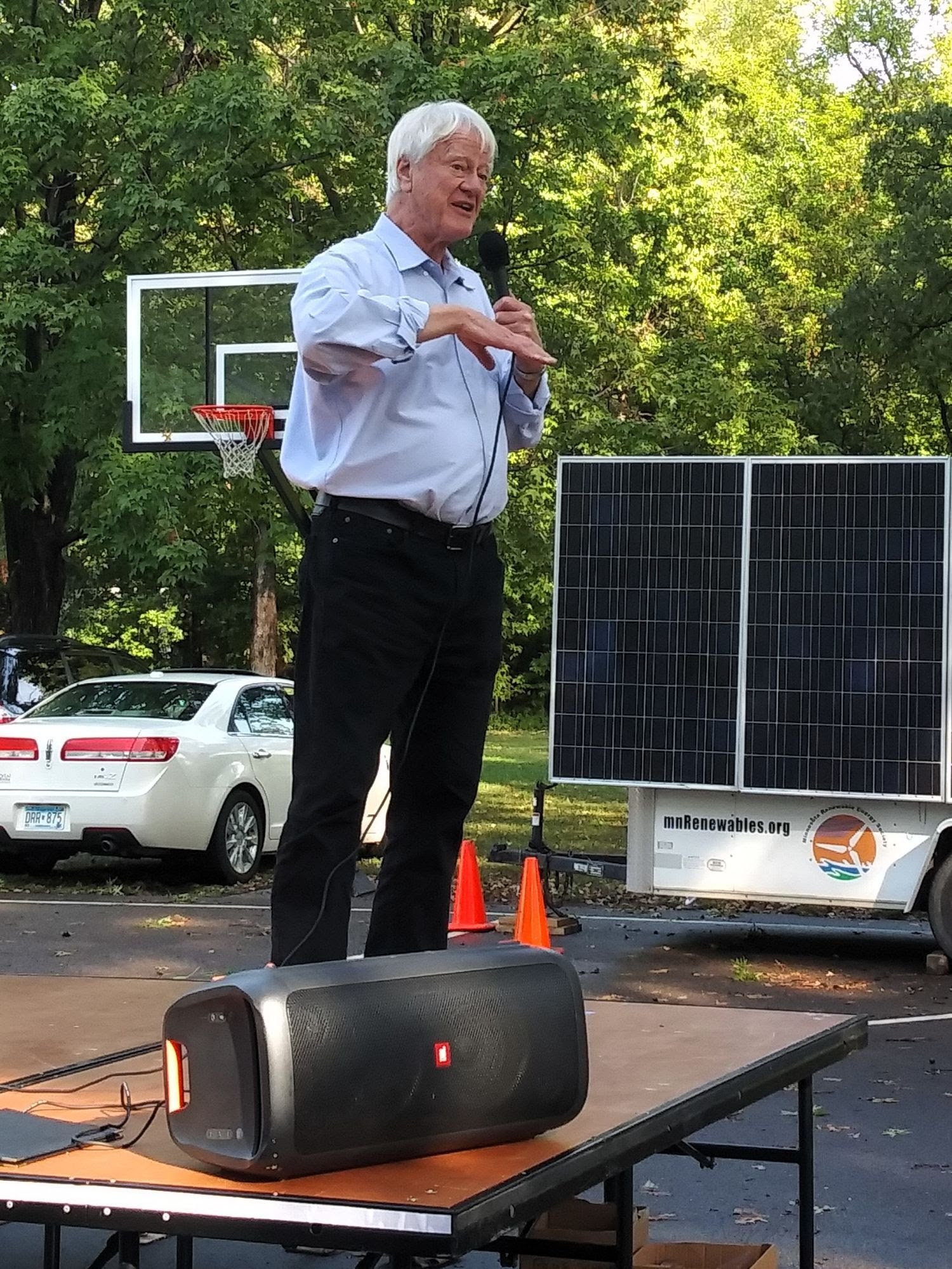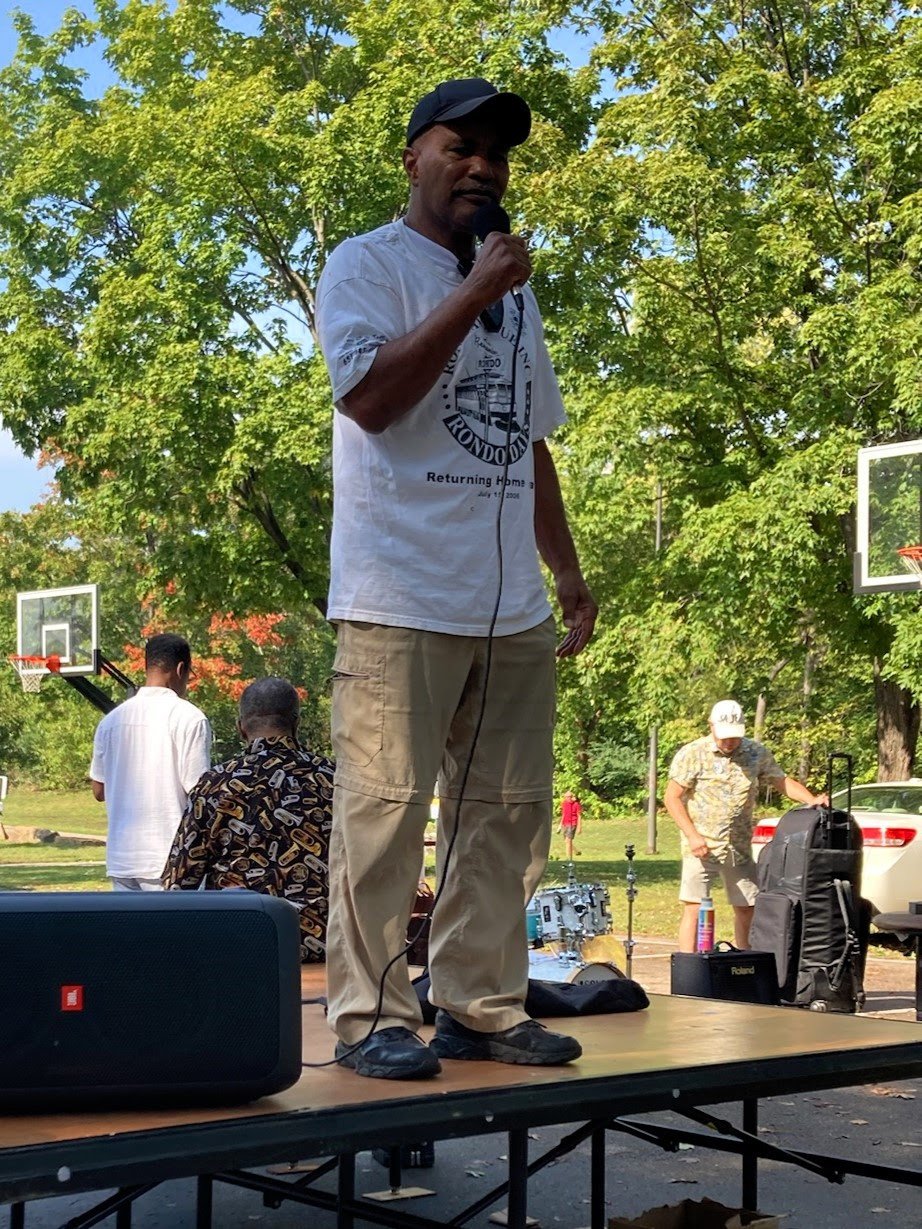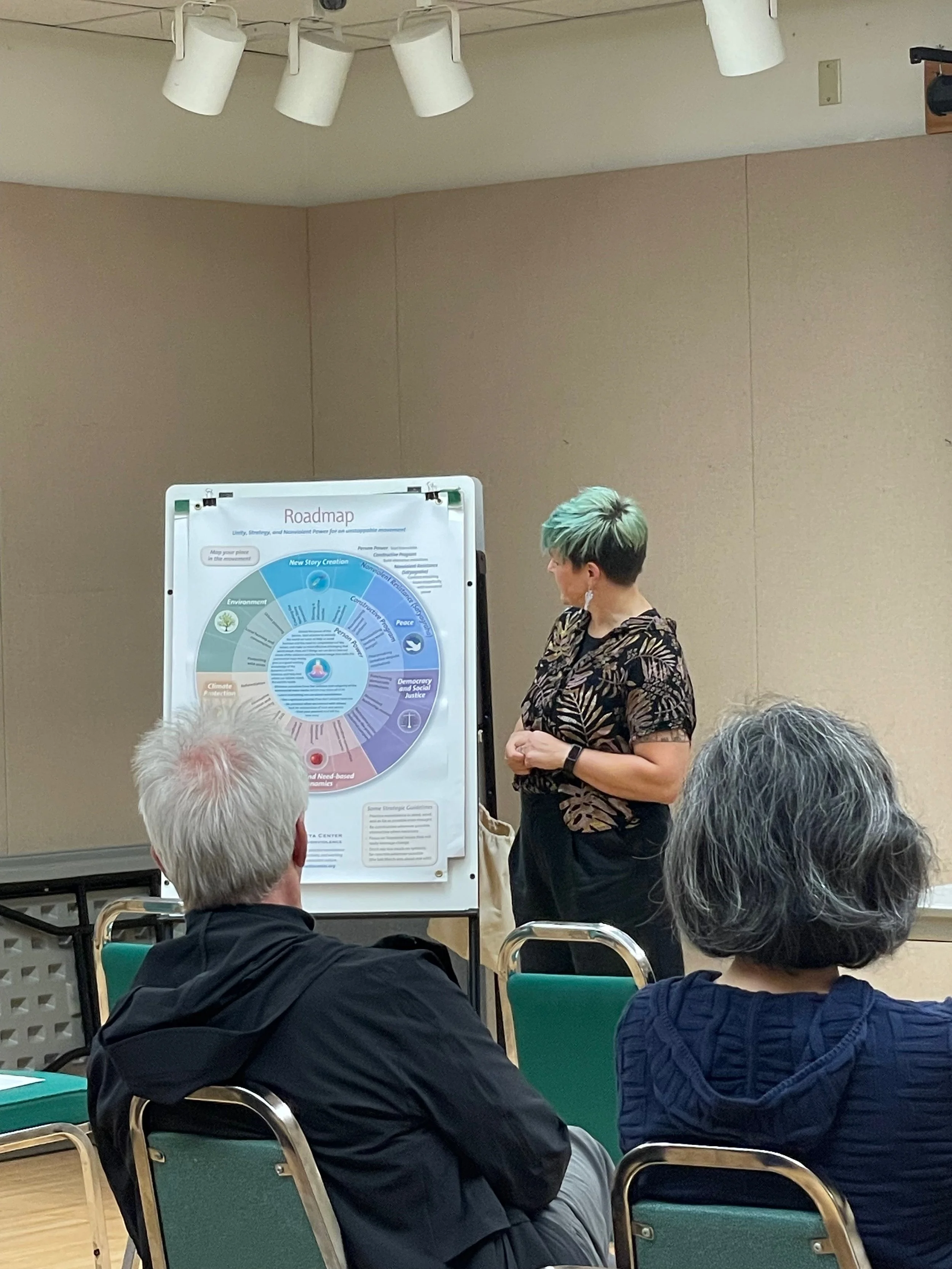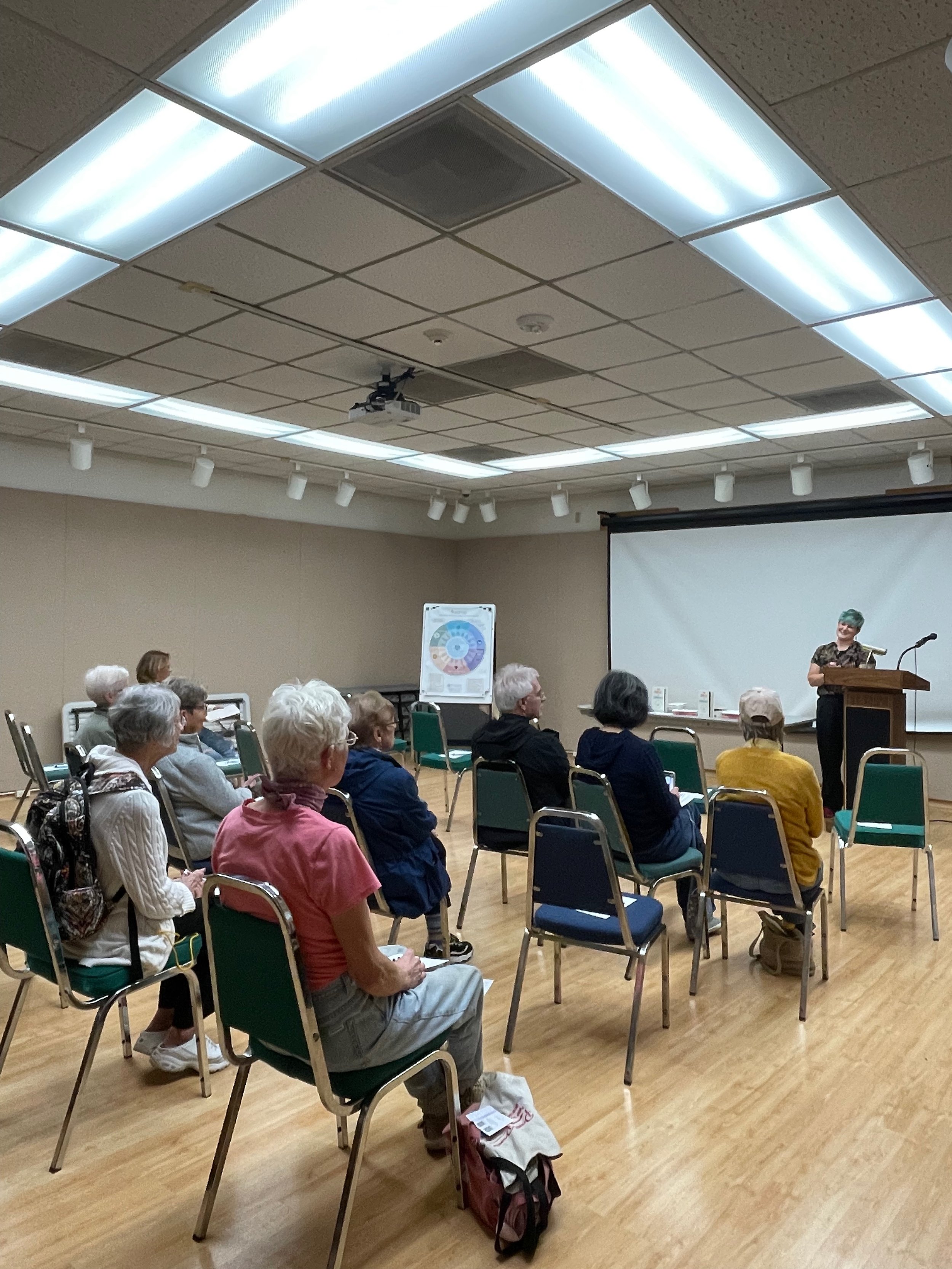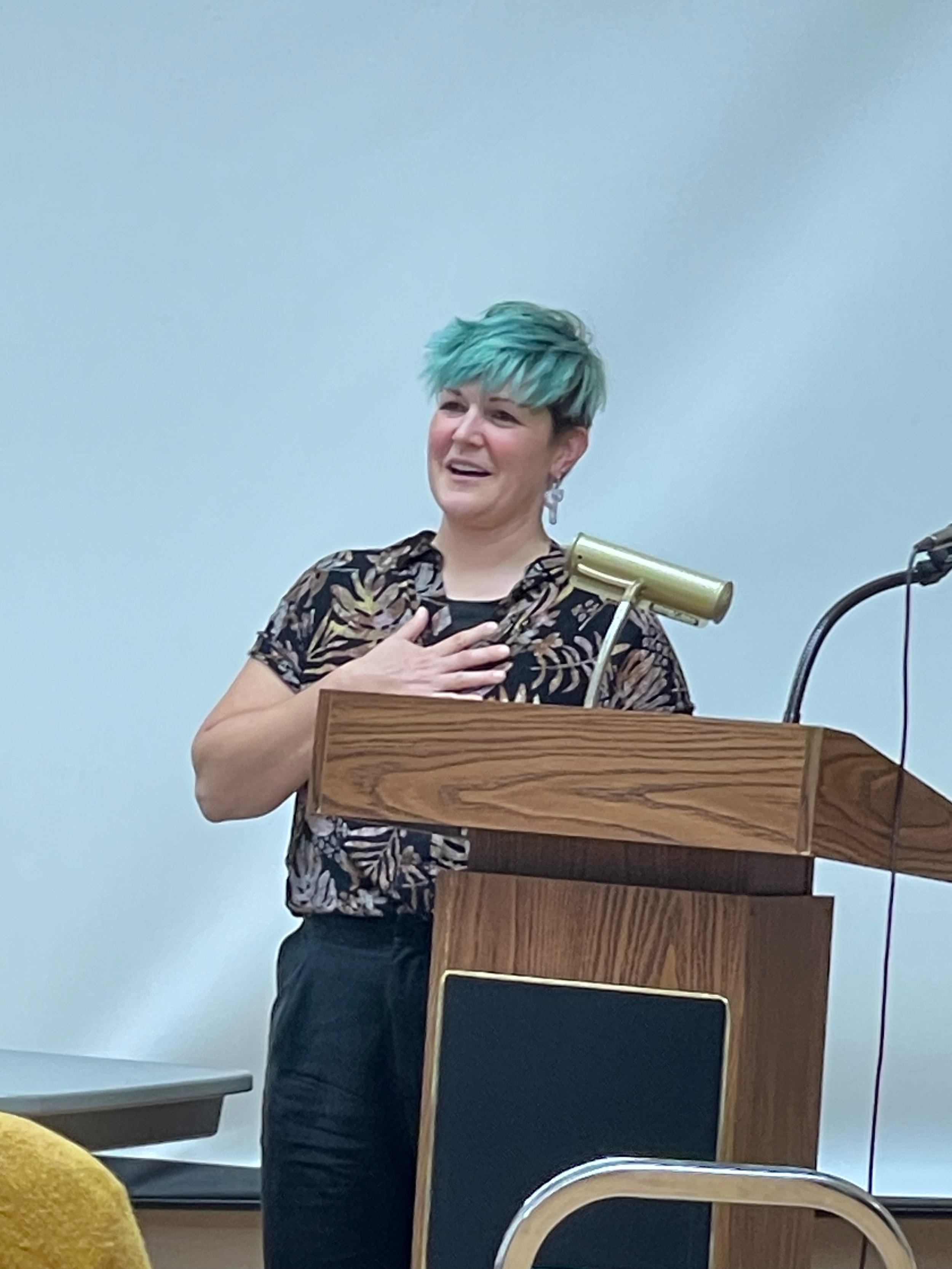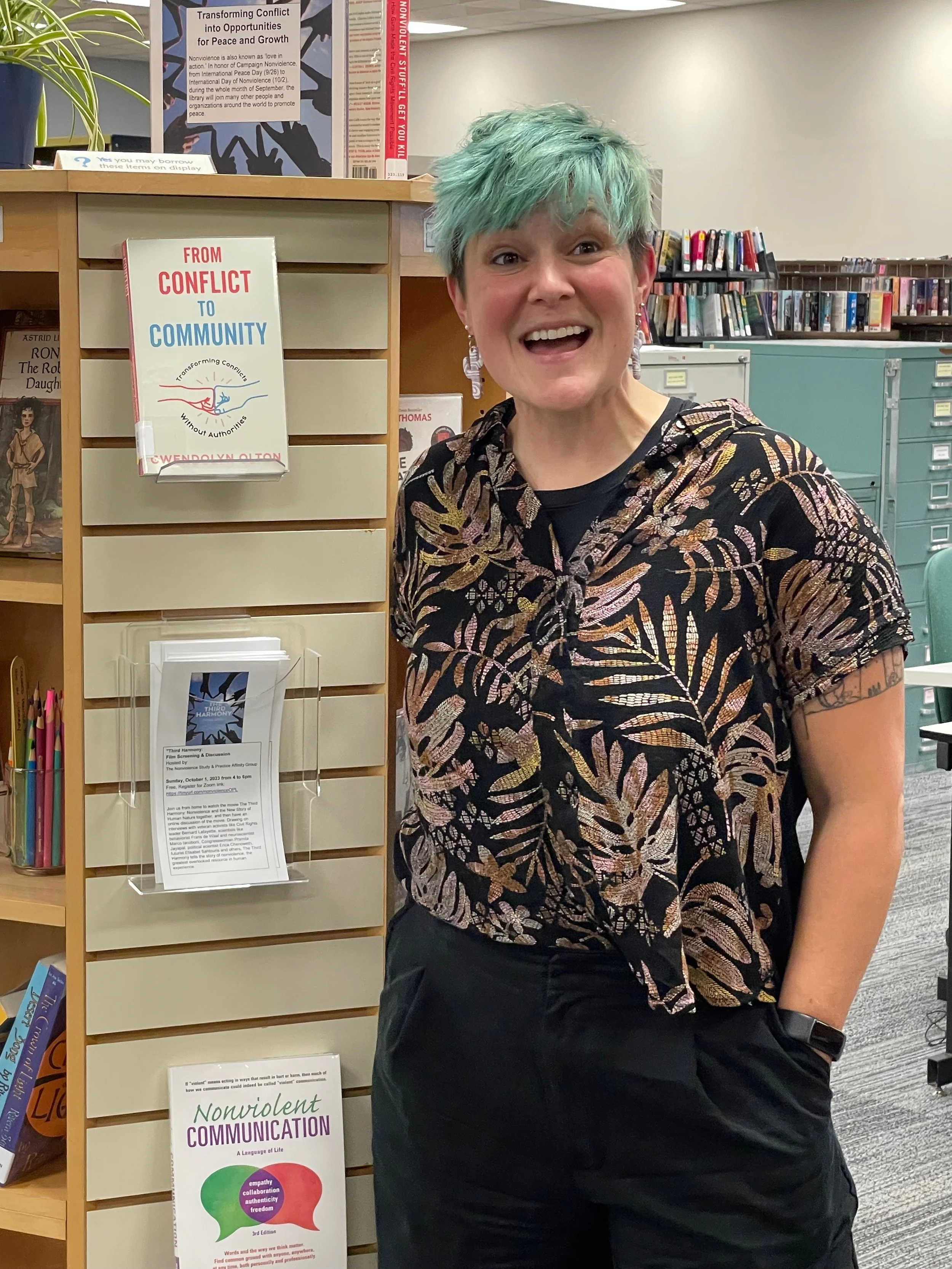Walking for Peace and Justice, and a Library Series on Nonviolence
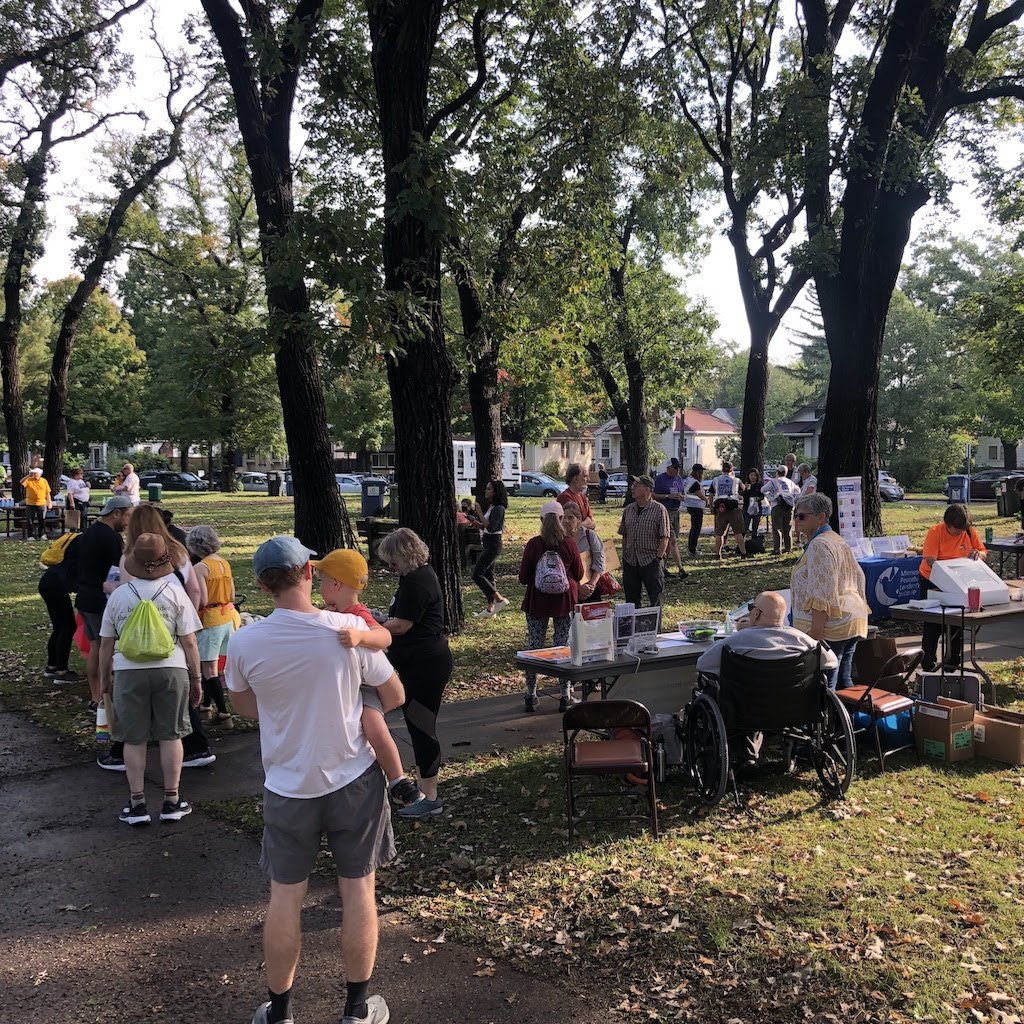
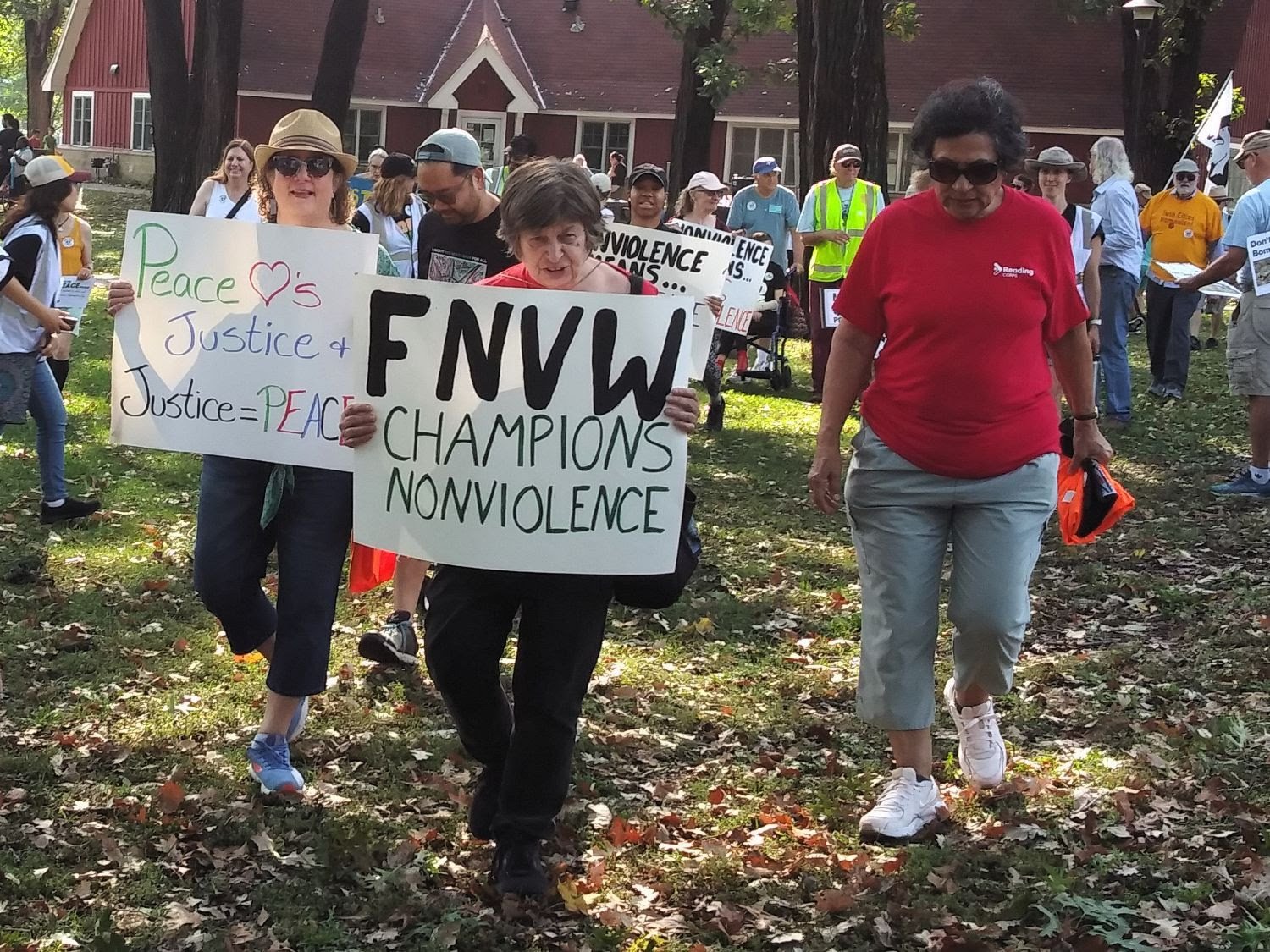
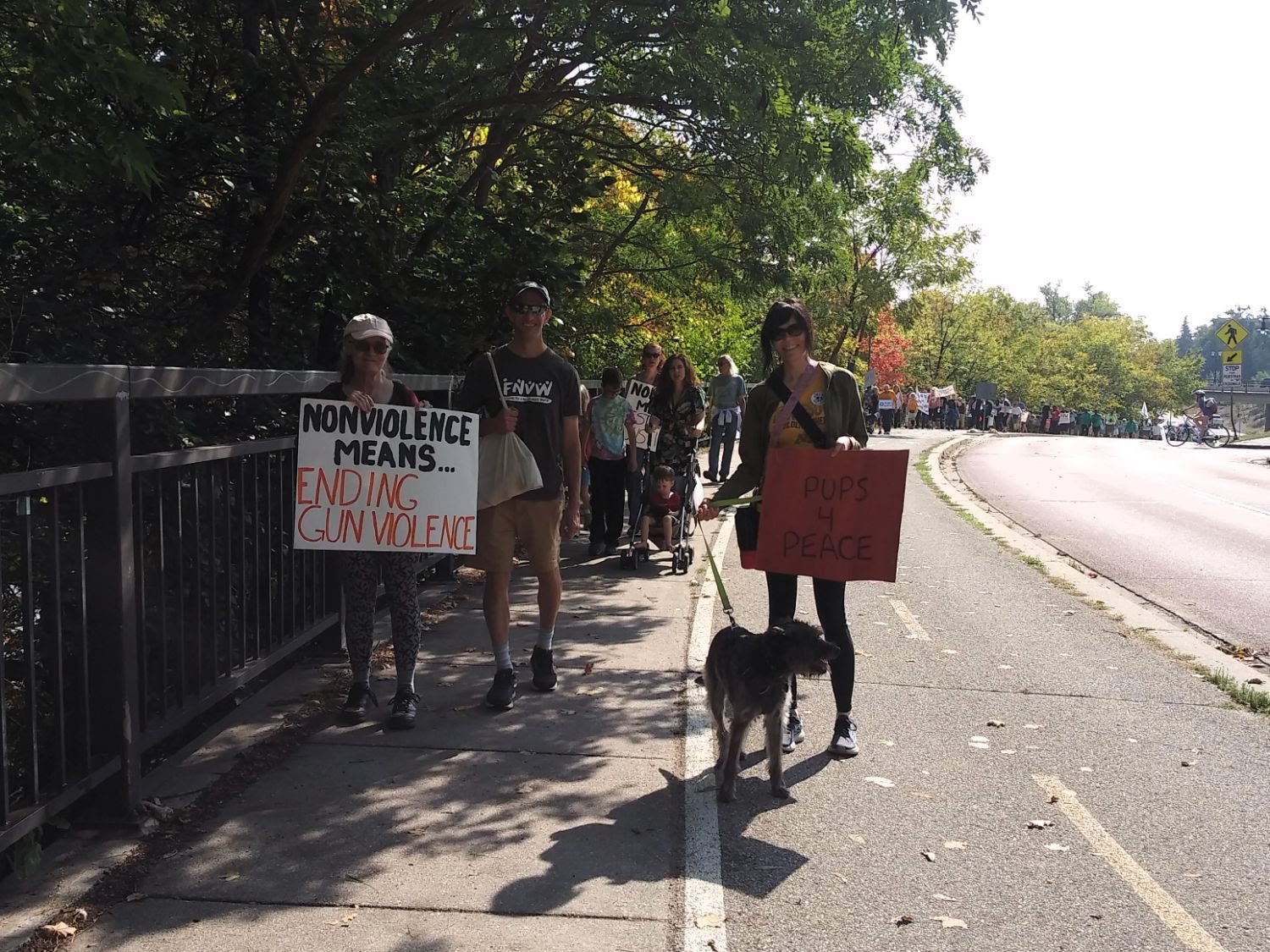
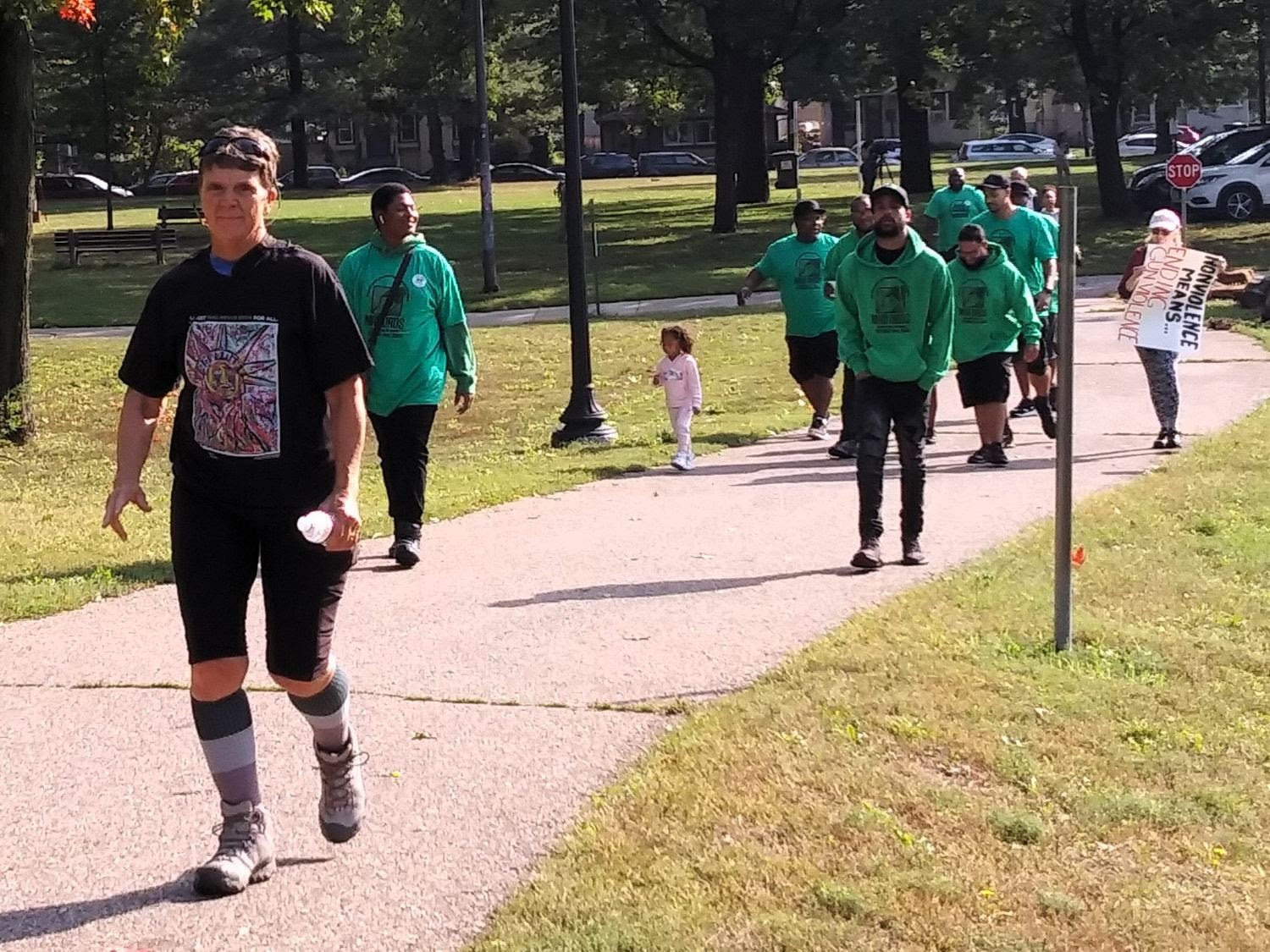
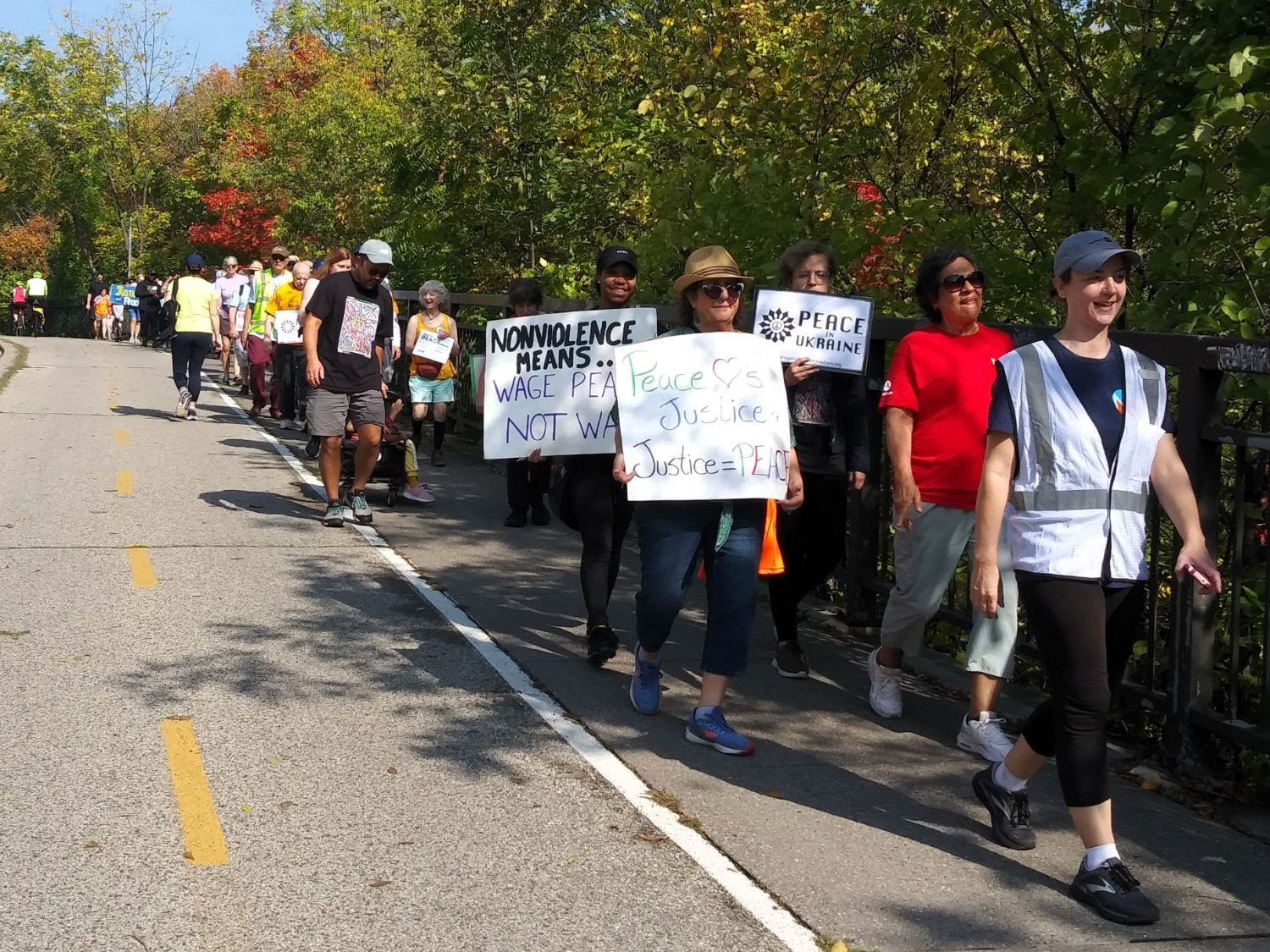
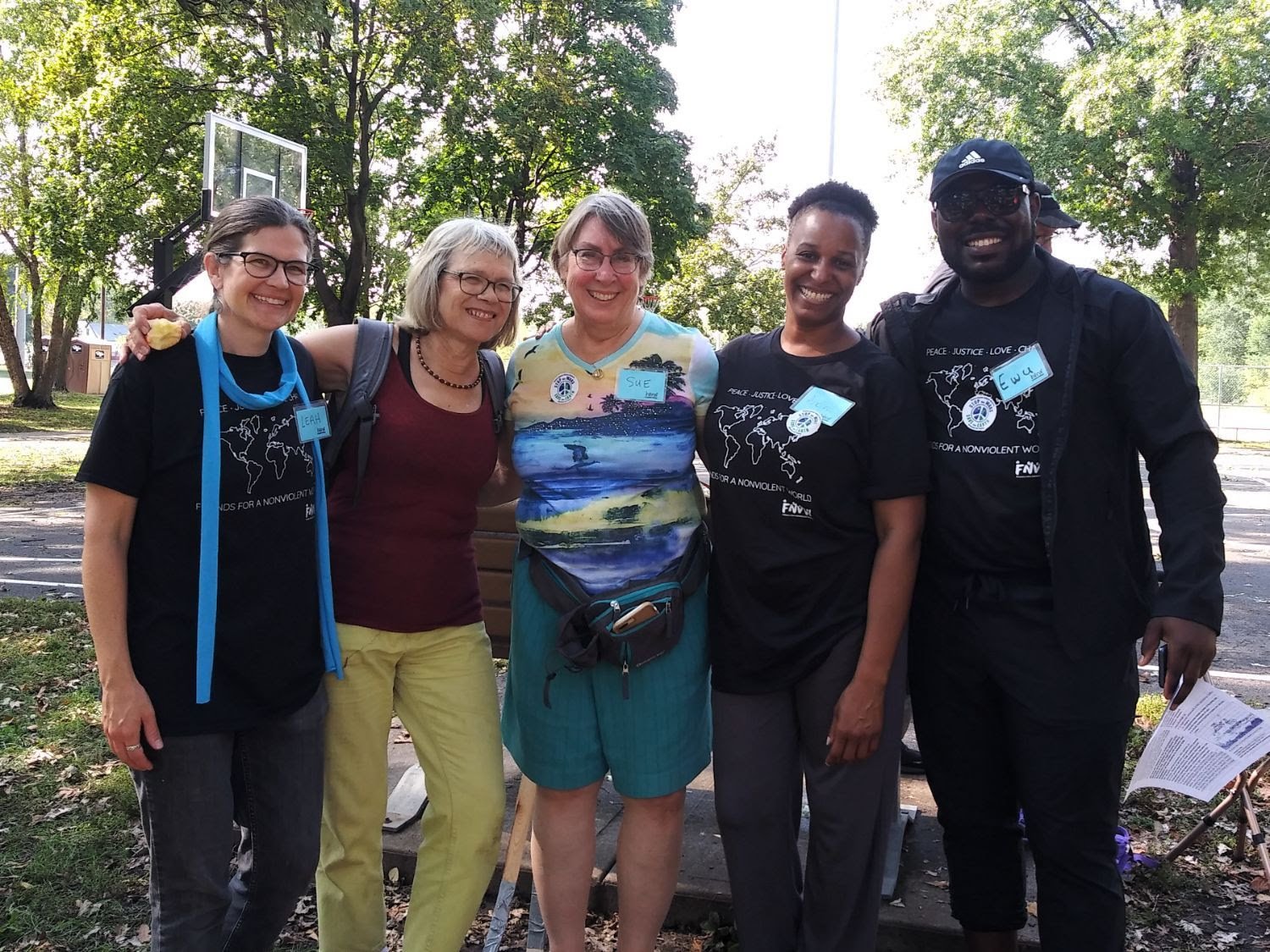
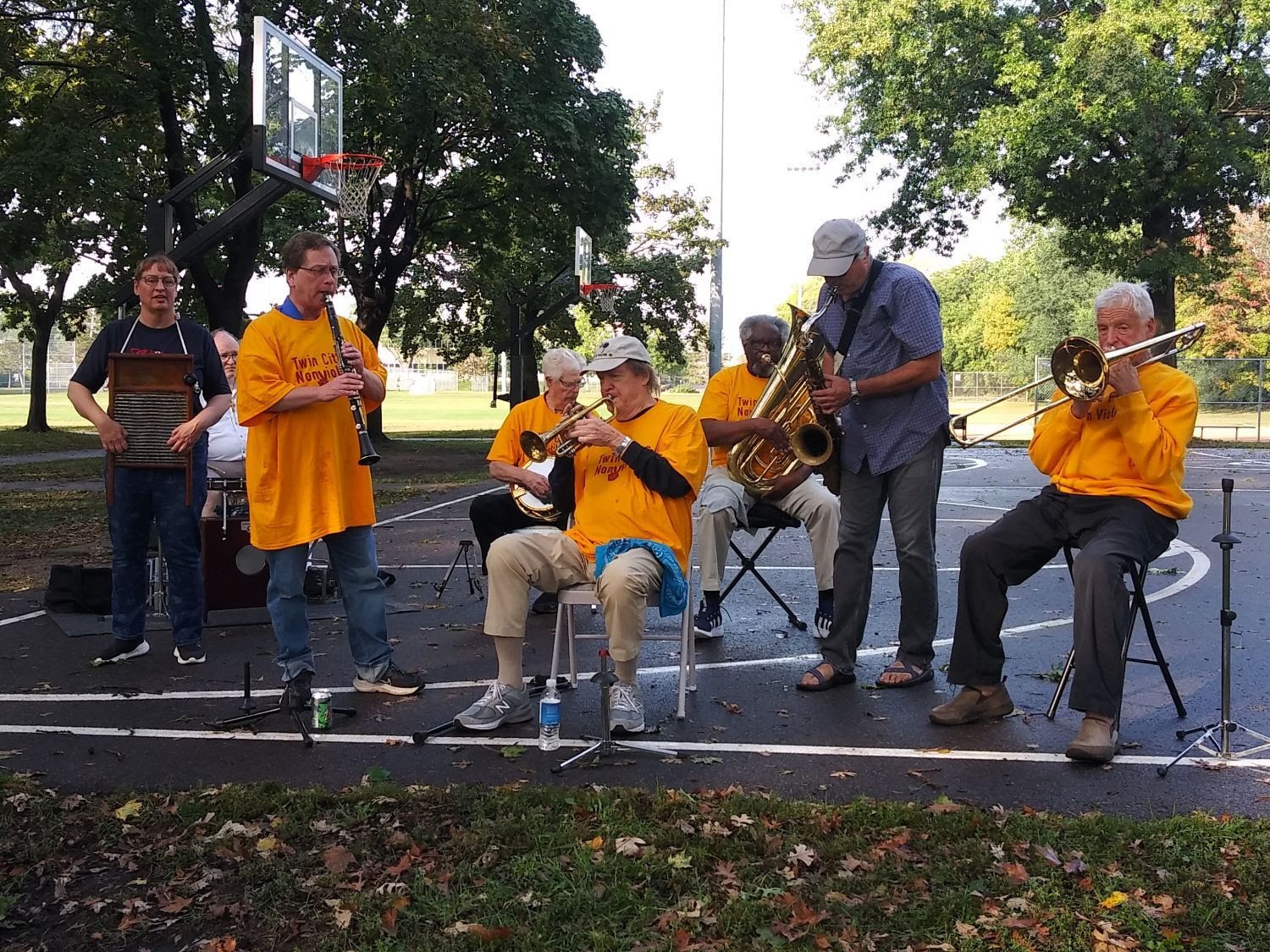
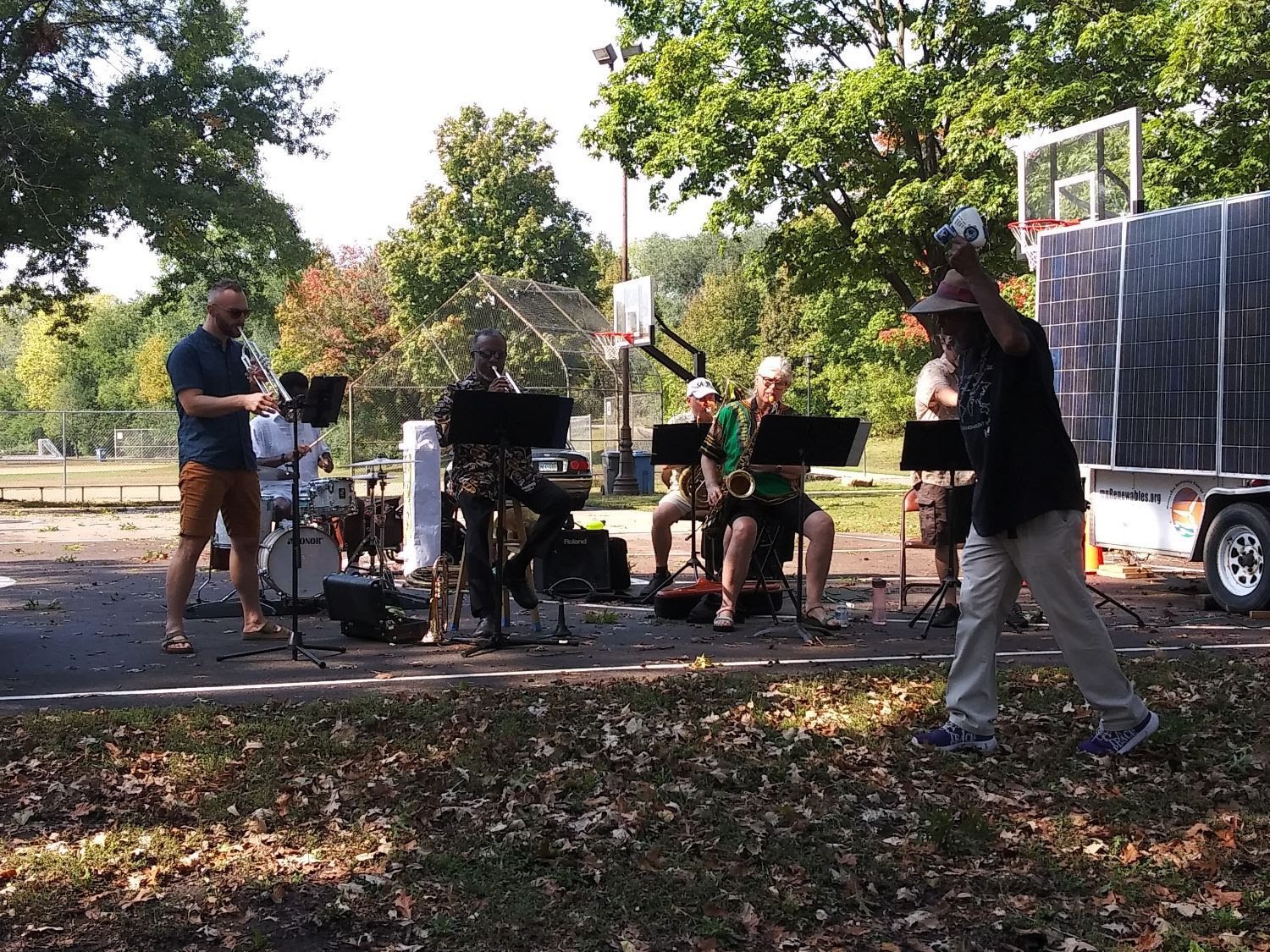
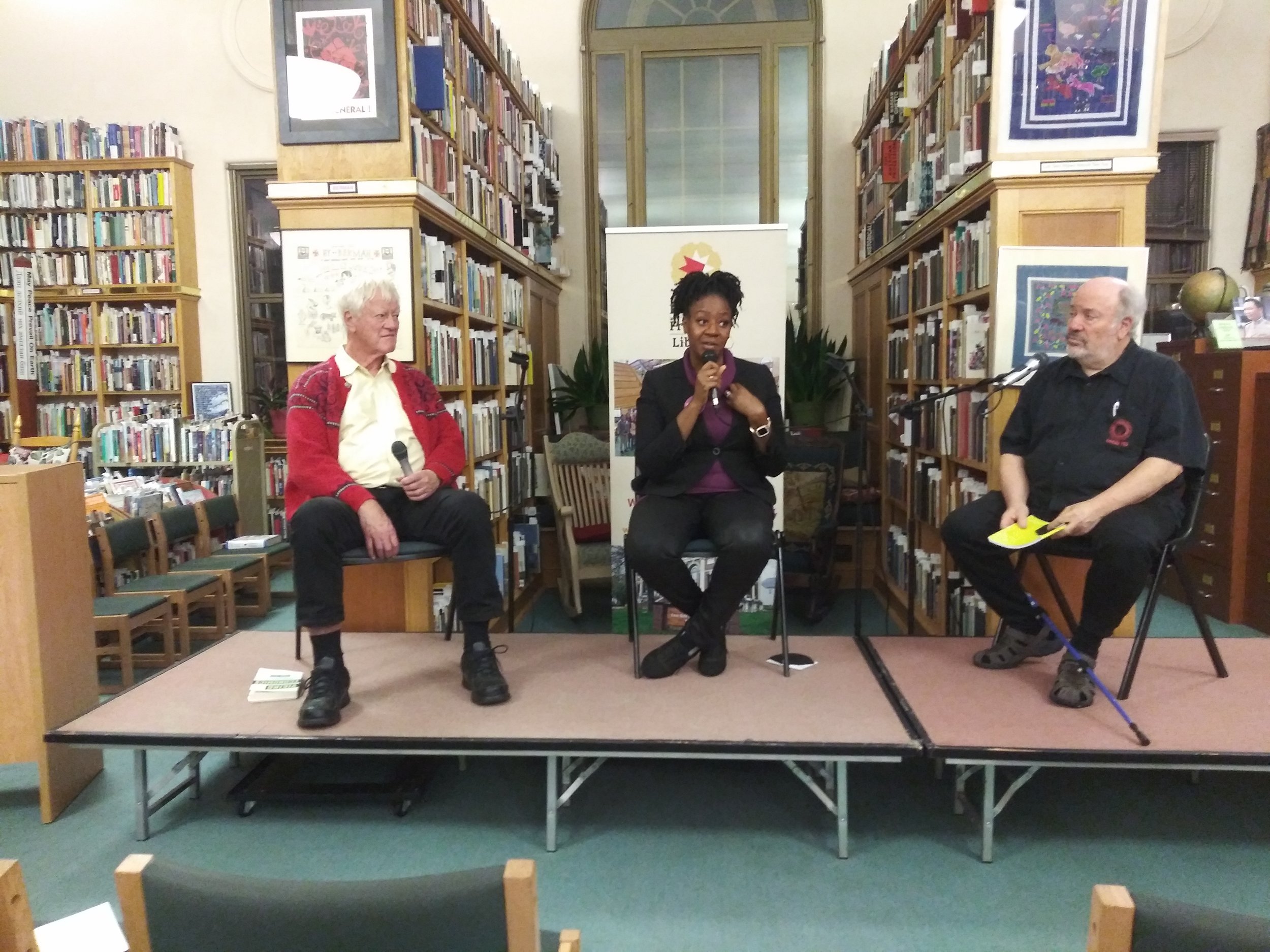
This year’s Campaign Nonviolence Action Days included actions across the US and around the World, uniting movements in pursuit of a nonviolent future free from war, poverty, racism, and environmental destruction. Whether the events reached an audience of one or one thousand, every one contributes to building a more peaceful world. Read on below for details from two organizers.
In Minneapolis and St. Paul, MN, Friends for a Nonviolent World (FNVW) celebrated Action Days with their Walk for Peace and Justice. The event was a huge success thanks to the hard work of organizers and the 29 different community organizations that participated by tabling and walking along the Mississippi River to the Marshall Ave/Lake Street Bridge and back. Over 175 people gathered to demonstrate support for nonviolent solutions to the violence in their community. Walkers filled the pedestrian paths along both sides of the Mississippi River, sharing the positive message of peace and justice with all who passed by. Participants also got to participate in meaningful conversations and forming new connections amongst themselves as they walked the 1 mile short loop or 4.5 mile long loop. Before and after the walk, people were greeted by food and drinks donated from local businesses, fabulous musicians, passionate speakers (including Melvin Carter Jr and George Lakey), enthusiastic event volunteers, and amazing partner organizations who helped educate on nonviolence in the community. This event was part of Twin Cities Nonviolent's 12 Days Free From Violence.
Watch George Lakey’s keynote address below, and see local news coverage of the event here: https://kstp.com/kstp-news/local-news/support-for-victims-of-violence-shown-at-community-peace-walk/
Leah Robshaw Robinson, Executive Director of Friends for a NonViolent World, shared more about their other events in Minneapolis and St. Paul, MN during Action Days. First was How We Win: Organizing for Environmental and Climate Justice on September 27, where 111 people of different generations gathered together for the planet. She writes, “This event was a powerful exploration of what it takes to organize successful campaigns that create environmental and climate justice in our community. FNVW's Executive Director, Leah Robshaw Robinson, moderated a panel conversation with local organizers, Nazir Khan and Joe Vital, and visiting nonviolent activist and movement elder George Lakey. The stories shared were poignant and personal. The audience left inspired to take action. Some social change campaigns use nonviolent tactics, without naming them as such. This event made new connections for some attendees—land occupation and other methods of direct noncooperation are nonviolent tactics!”
The next event for FNVW was Unbound: Building Race and Class Solidarity on September 28, with 73 people in attendance. Leah Robshaw Robinson writes, “Visiting nonviolent activist, professor, and movement elder George Lakey and Director of Communications ISAIAH MN, Minister JaNaé Bates shared their personal experiences with working together across differences to fight for racial and economic justice. They discussed the ways that polarization and clearly naming our opposition help move social change work forward. Historian Peter Rachleff moderated this special event.
Good Trouble, the song-leading duo made up of mixed Asian song-leaders Liz Digitale Anderson and Conie Borchardt, opened and closed the event with community singing that created space for justice, fun, and healing. The conversation emphasized the importance of courage and community in nonviolent activism. It also focused on campaign organizing strategy and how to use nonviolent direct action tactics to make social change.”
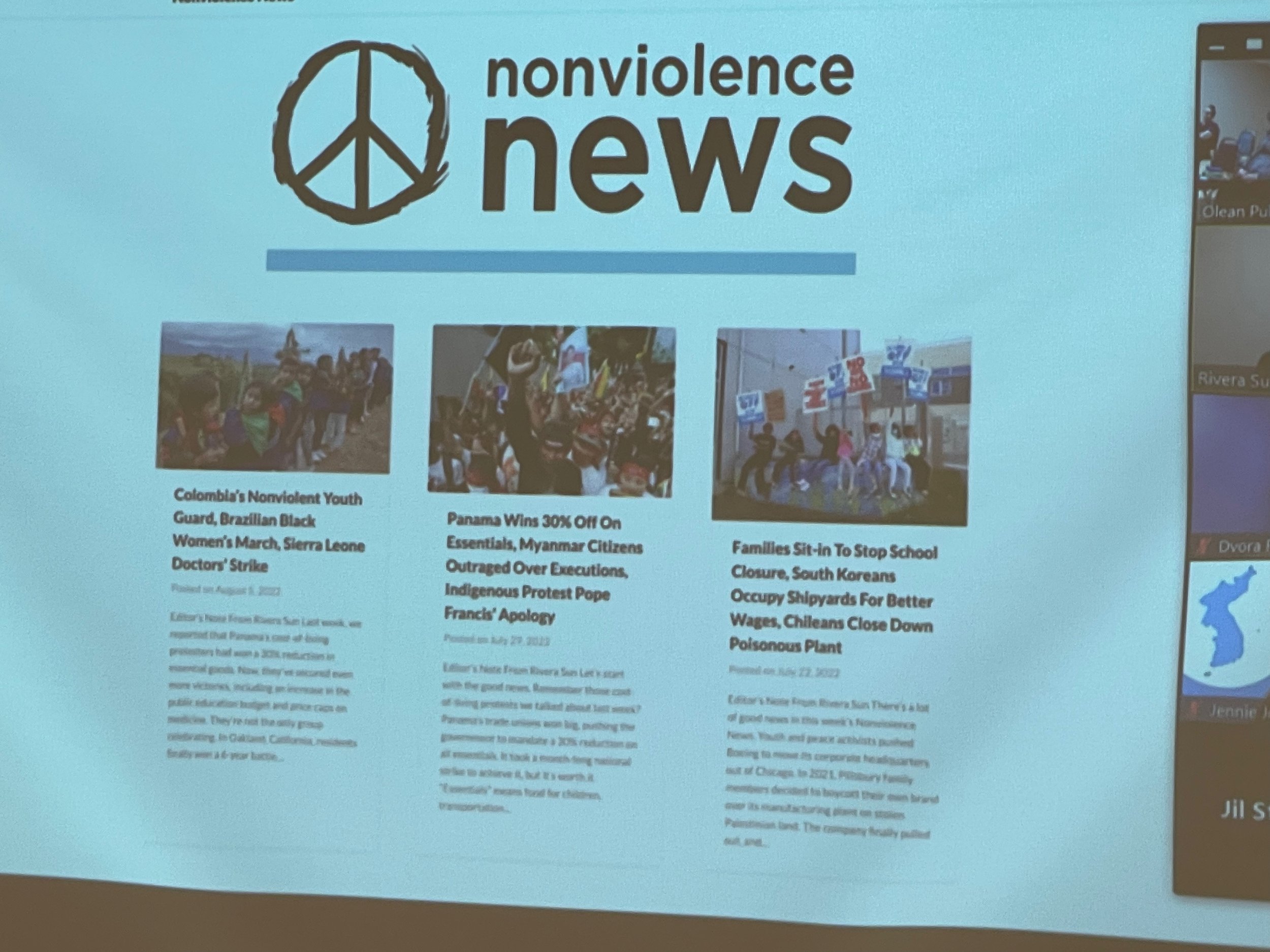
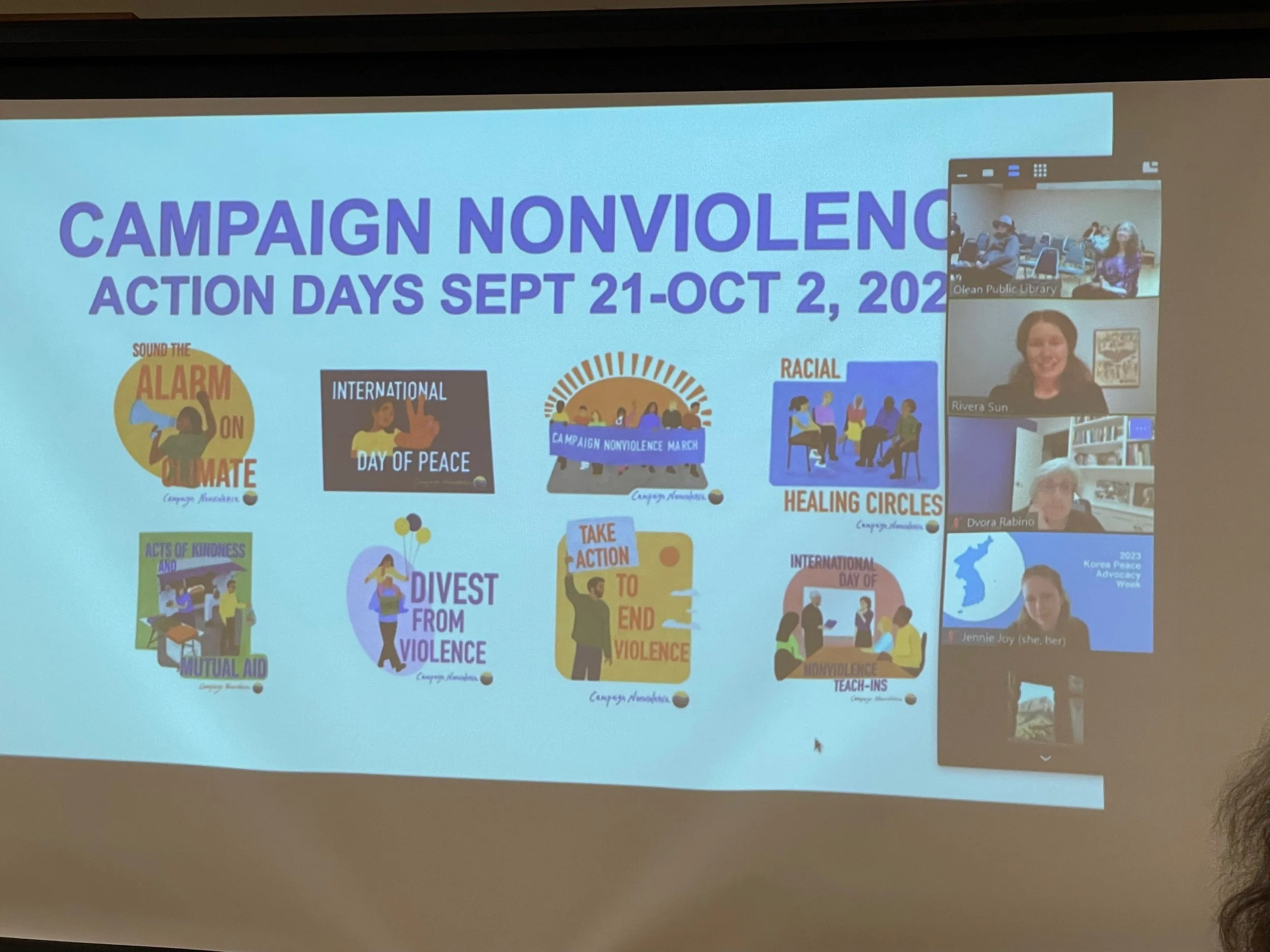
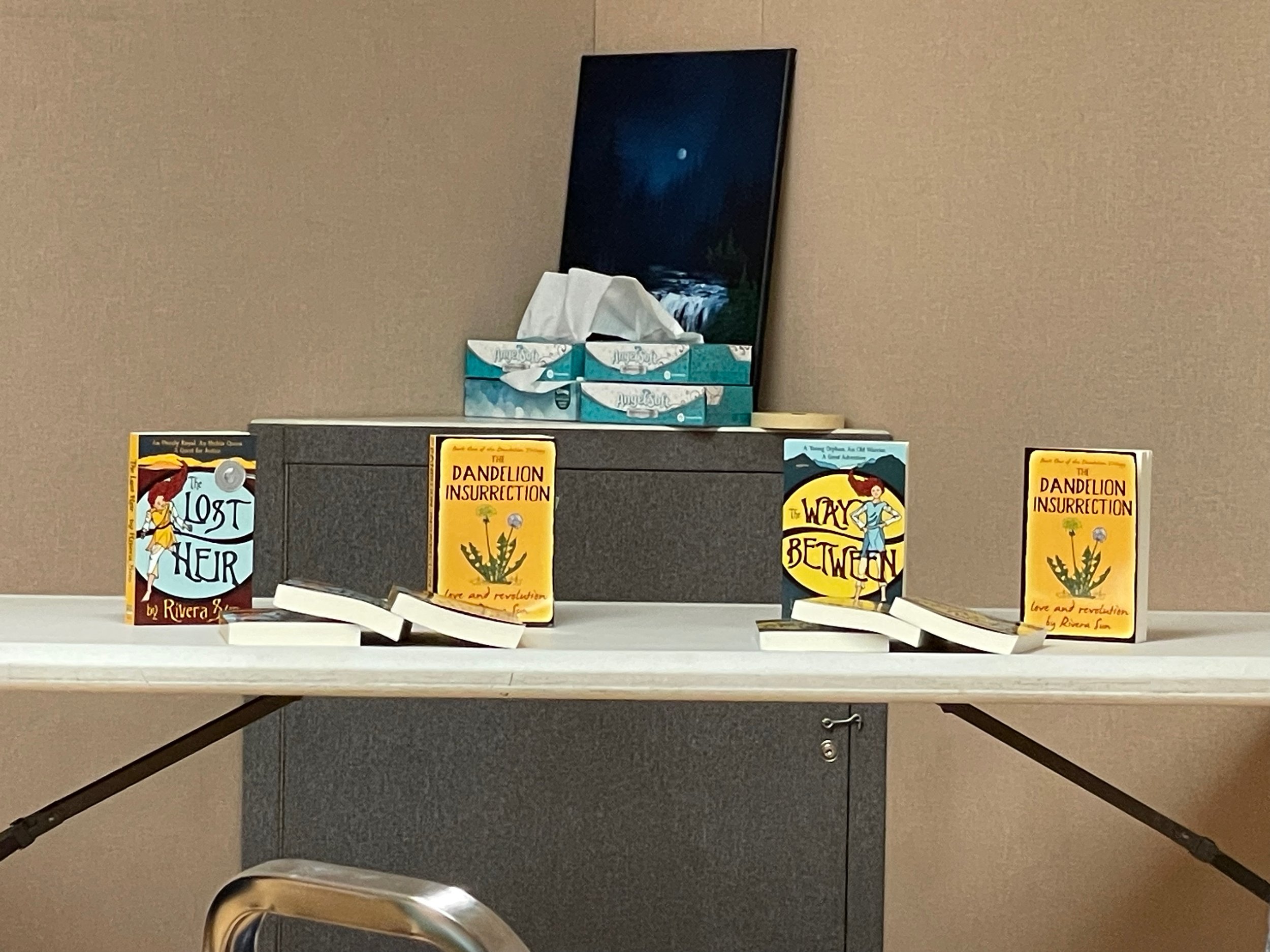
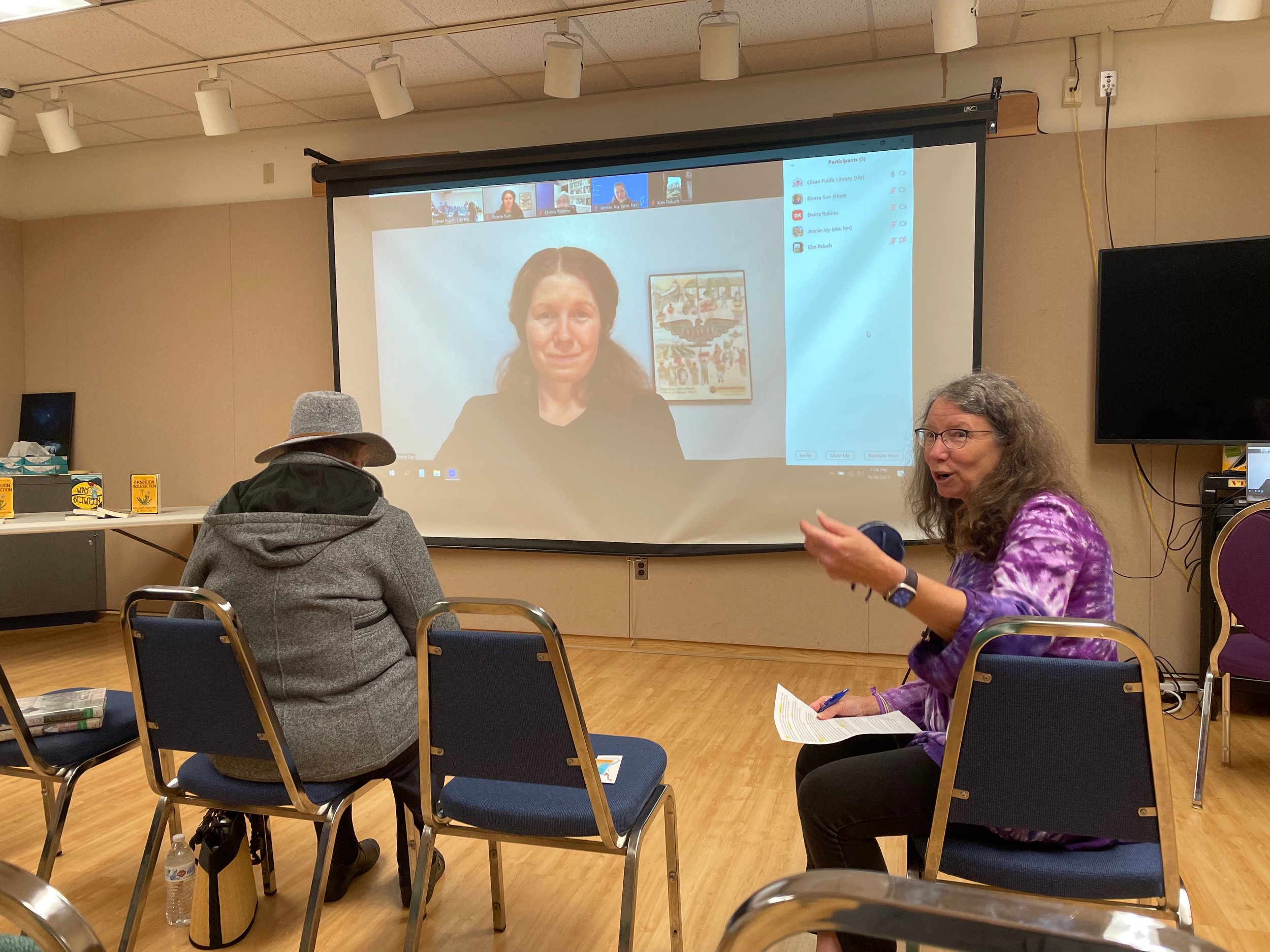
Darlene Goetzman from the Olean Public Library in Olean, NY shares about their events that attracted about 50 people: “This monthlong campaign that included a materials display, two author-talks, and a viewing and discussion of the film The Third Harmony generated a lot of discussion, and good attendance at the events. The most significant outcome is about a third of the people are interested in learning more. I think of these events as creating opportunities for people to dip their toes in the water of nonviolence. I imagine doing this enough times will lead to some choosing to engage in committed study and strategic actions.”
While about 50 people attended the events at the Olean Public Library, their reach extended beyond the in-person audience by landing in their local newspapers. Check out their press coverage here: Narratives of Nonviolence 1 and 2, Addressing Conflict 1 and 2

